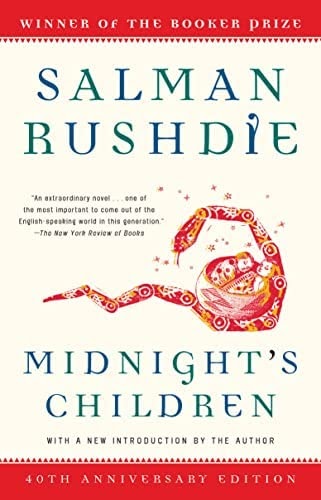Salman Rushdie, Midnight’s Children (1981)
As a kid I used to read Herb Caen’s column in the San Francisco Chronicle. Usually a series of small items of city gossip, occasionally a single poetic paean to some or other aspect of his beloved Baghdad by the Bay (referring to the historically beautiful, exotic Mesopotamean capital, not the war zone of modern imagination), Caen’s columns created a sense of the city as a community, hip and knowing and a little zany.
When I arrived in New York for college, I assumed it must have its own version of Herb Caen, and I went looking for whoever that might be. Only there wasn’t a Herb Caen of New York, a city altogether too large for such a thing. Herb Caen was unique, and only San Francisco had one.
The same might be said for Midnight’s Children and India, especially Bombay. Surely every country deserves a work of such vibrant intensity, such joyous, protean creativity, such depth, such breadth. But there is only one Midnight’s Children. Even Rushdie couldn’t repeat it. His portrait of Quetta in Shame is gray and flat, and his portrait of New York in Fury feels uncomfortably like a tourist writing a parody of Midnight’s Children. Only the London of The Satanic Verses comes close.
Never read an insider’s account of a place and assume that’s what you’ll find when you arrive as an outsider. I came to Bombay with Midnight’s Children in my head. I went to the Hanging Gardens of Malabar Hill to find an ordinary park, and I went to Chowpatty Beach to find a dirty strip of sand where I was harrassed by a snake charmer with a defanged cobra, and I saw the lights come up on the Strand and was unimpressed by a long line of dull orange globe lamps. There was no magical realism waiting for me in Bombay, just the all-too-real smog and heat and poverty and decay and administrative ineptitude most travelers find.
Midnight’s Children roams the subcontinent, of course: Kashmir, Pakistan, Bangladesh. I mostly missed its other locations. But I was there in Bombay, looking for the magic. It’s not Rushdie’s fault that I mostly missed it. What I found in Bombay was important to me, even if it wasn’t exactly pleasant. But that’s a story for another day.

